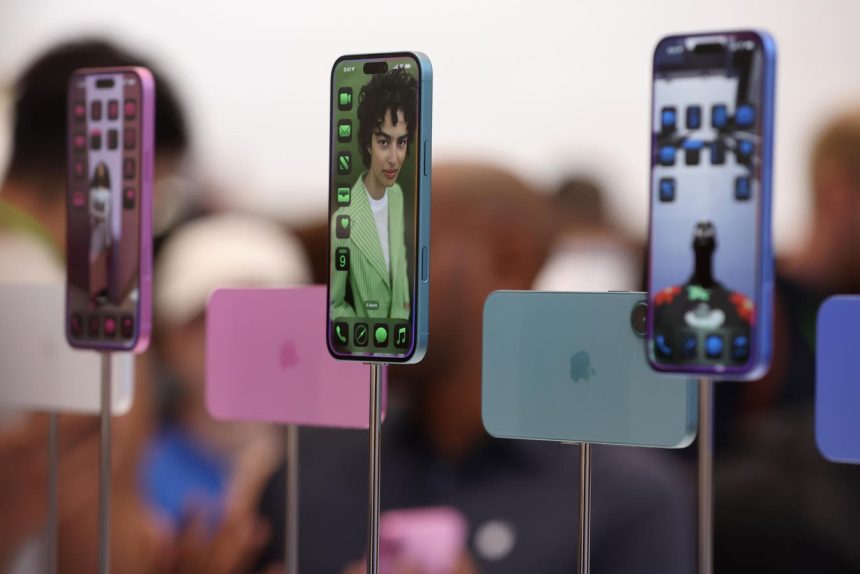The year 2024 has been a pivotal one for the smartphone industry, marked by the emergence of generative AI, a reassessment of form factors, and a renewed focus on both large and small physical sizes. Manufacturers faced the challenge of delivering innovation in a market where incremental upgrades are becoming the norm. My selection for the smartphone of the year considers not only technical specifications but also the emotional impact and future-defining qualities of the device.
Several strong contenders emerged this year, each with its own strengths and weaknesses. Apple’s iPhone 16 Pro, despite its powerful hardware, suffered from a late and underwhelming entry into the generative AI arena. While Apple excels in other AI applications, its tardiness in embracing generative AI, a defining feature of 2024 smartphones, placed it behind competitors like Google and Samsung. This misstep highlights the importance of timely innovation in a rapidly evolving market. Apple’s closed ecosystem and rigid software approach further contributed to its falling short of expectations.
Samsung’s Galaxy S24 Ultra, with its early adoption of generative AI through Galaxy AI and its exclusive partnership with Qualcomm for an overclocked processor, initially dominated the AI-enabled smartphone market. However, the S24 Ultra’s advancements were largely iterative, offering incremental improvements over its predecessor rather than groundbreaking innovation. While Samsung’s early adoption of generative AI set the tone for the year, the phone itself didn’t represent a radical shift in the smartphone landscape.
Google’s Pixel 9 Pro, with its various form factors including the standard, XL, and Fold versions, showcased Google’s commitment to both AI and hardware diversity. The Pixel 9 Pro’s implementation of Gemini AI stood out, offering a more conversational and flexible approach to AI interaction. While Google’s willingness to share its AI technology with other Android manufacturers signals a collaborative approach, the Pixel 9 Pro’s Gemini AI offered the most compelling and user-friendly generative AI experience in 2024. However, its various sizes and the somewhat bulky design of the XL and Fold models presented practical drawbacks.
While not strictly a smartphone, the Retroid Pocket 4 Pro deserves mention for its impact on the portable gaming market. Leveraging Android’s versatility and a dedicated controller, the Pocket 4 Pro provided a compelling gaming experience, demonstrating the maturity of the Android gaming ecosystem and challenging the traditional definition of a “smartphone” by prioritizing functionality over form. Its lack of cellular connectivity ultimately disqualifies it from the smartphone of the year title, but its innovative approach is noteworthy.
Finally, the Honor Magic V3 emerges as the true standout of 2024. This third-generation foldable refined the foldable form factor, achieving an impressively thin design while maintaining a practical and user-friendly experience. Its sleek profile, IPX8 water resistance, and intuitive software features like app aspect ratio locking addressed the shortcomings of previous foldable devices. The Magic V3’s design also foreshadows the trend towards thinner smartphones expected in 2025.
The Honor Magic V3’s significance extends beyond its individual features. It represents a maturation of the foldable concept, proving that foldable phones can be both practical and aesthetically pleasing. Its slim profile challenges the conventional smartphone design and sets a new benchmark for future devices. While not a mass-market device, the Magic V3’s influence on the industry’s trajectory is undeniable. It represents a bold step forward in smartphone design and technology.
While other devices made strides in generative AI and iterative improvements, the Honor Magic V3 pushed the boundaries of what a smartphone could be. It took a nascent technology and refined it into a genuinely compelling product. Its impact on the future of smartphone design is likely to be substantial, inspiring other manufacturers to pursue similar innovations. It signifies a shift in the industry, moving beyond incremental upgrades and towards more radical and exciting changes in form factor and functionality. The Magic V3 is not just a good phone; it is a statement about the future of smartphones. Its combination of innovative design, practical functionality, and forward-looking technology makes it the clear choice for the smartphone of the year.



